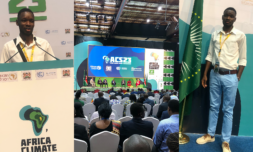In an event signifying the burgeoning potential of Africa’s tech industry, Gitex Africa recently concluded its second edition in Morocco, attracting innovators, entrepreneurs, and tech enthusiasts from the world over.
Held in Marrakech, Gitex Africa brought together over 1,500 exhibitors and startups, along with thousands of visitors from more than 130 countries. The event brought together ideations, innovations, and partnerships aimed at harnessing technology to address Africa’s unique challenges and opportunities.
The fair featured a diverse range of sectors, from fintech and agritech to edtech and healthtech, highlighting the many applications of technology in driving socio-economic development.
Keynote speakers included influential figures from the tech industry, government officials, and thought leaders who expressed the importance of digital transformation in achieving sustainable growth.
One of the central themes of Gitex Africa was empowering the continent’s youth. According to the UN, Africa is home to the world’s youngest population, with over 60% of its inhabitants under the age of 25. This demographic presents both a challenge and an opportunity.
Gitex Africa sought to leverage this potential by providing a platform for young entrepreneurs and innovators to showcase their solutions and connect with investors and mentors. According to Gitex Africa, the region’s GDP is expected to top $4 trillion by 2027.
The event hosted numerous workshops, hackathons, and pitch competitions designed to foster creativity and entrepreneurial spirit among young Africans. These activities not only highlighted the ingenuity of Africa’s youth but also provided practical support and resources to help turn their ideas into viable businesses.
From groundbreaking startups to established tech giants, Gitex Africa highlighted the continent’s innovative prowess. Exhibitors showcased cutting-edge solutions tailored to African contexts, such as mobile banking apps for the unbanked, precision agriculture technologies for smallholder farmers, and e-learning platforms to bridge educational gaps.




















